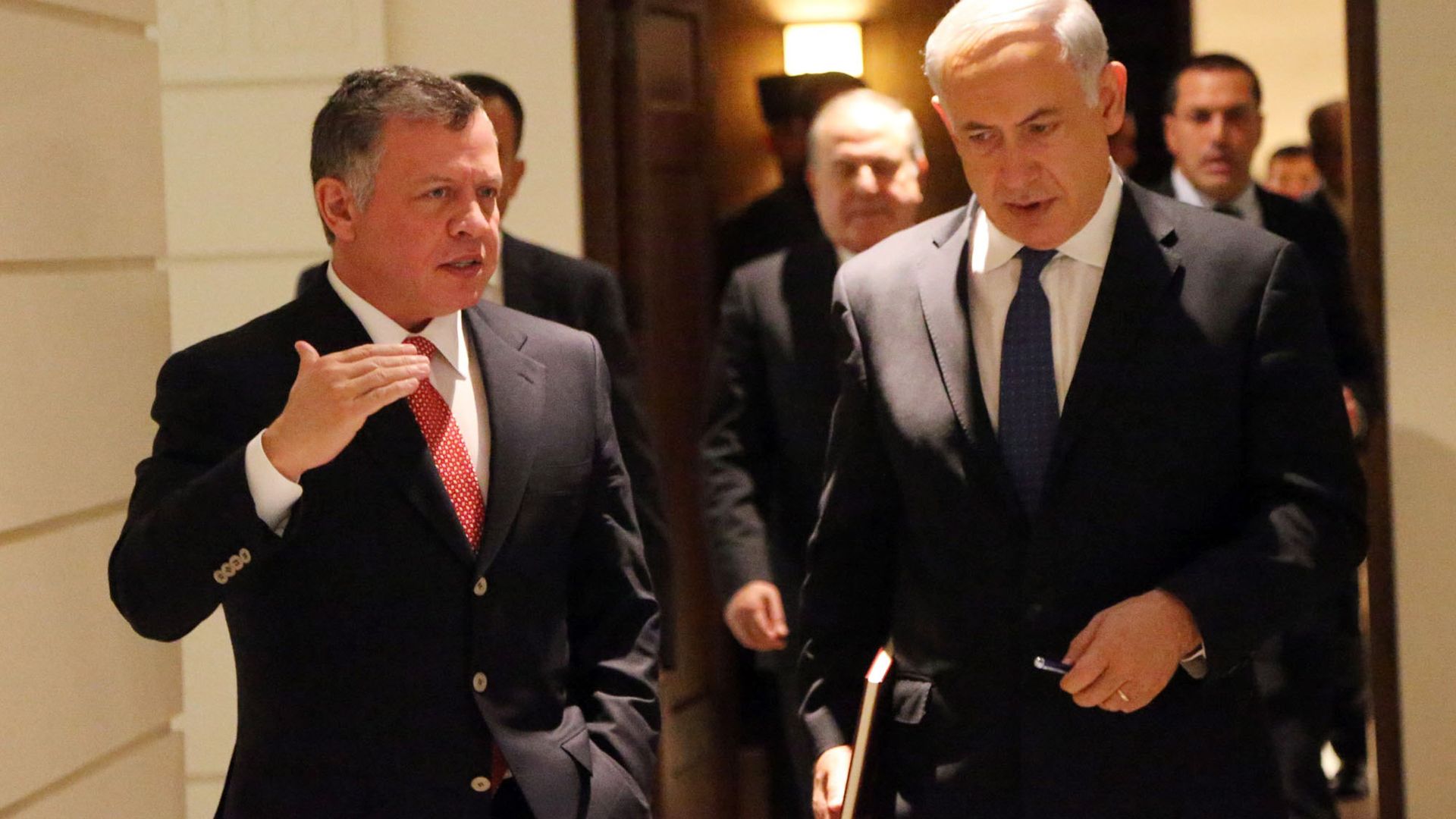The Facts
On Tuesday, Israel's recently elected PM Benjamin Netanyahu made his first official visit to a foreign country since coming back to office, traveling to neighboring Jordan to meet with King Abdullah and discuss a number of regional issues, including Al-Aqsa Mosque, the focal point of tensions in recent months.
Jordan’s royal court said that Abdullah urged his Israeli counterpart to respect the status quo at the sacred compound — which Muslims call Al-Aqsa and Jews call the Temple Mount – that has been under Jordan's custodianship for decades.
The Spin
Narrative A
Netanyahu's visit to Amman was a great step in strengthening Israel and Jordan's special relationship. Though the agreements with Jordan regarding the Temple Mount are not ideal for Israel, or Jews as a whole for that matter, given that they are barred from praying there, these concessions have cemented a strong relationship between Israel and its Arab neighbor. Of course, tensions have risen in recent years, but Jordan is still a necessary Israeli ally, and Israel is ready to negotiate and make concessions.
Narrative B
As far-right extremists continue to grow their power within Israel's institutions, neighboring Arab states must take a stand to ensure that the status quo at Al-Aqsa is maintained, regardless of Israel's aggressive actions. The understanding between Israel and Jordan regarding Al-Aqsa formed immediately after the 1967 war is one of the only arrangements between Israel and an Arab state that has actually helped ease tensions. Netanyahu should remain cautious of disturbing this understanding.
